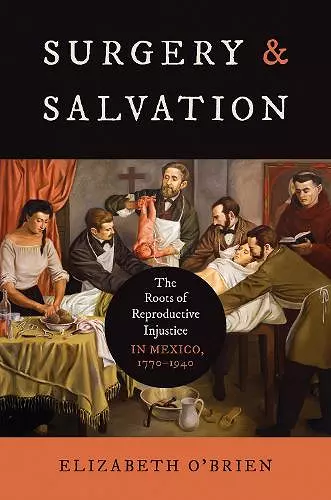Surgery and Salvation
The Roots of Reproductive Injustice in Mexico, 1770-1940
Elizabeth Aislinn O'Brien author
Format:Hardback
Publisher:The University of North Carolina Press
Published:14th Nov '23
Currently unavailable, our supplier has not provided us a restock date

In this sweeping history of reproductive surgery in Mexico, Elizabeth O'Brien traces the interstices of religion, reproduction, and obstetric racism from the end of the Spanish empire through the post-revolutionary 1930s. Examining medical ideas about operations (including cesarean section, abortion, hysterectomy, and eugenic sterilization), Catholic theology, and notions of modernity and identity, O'Brien argues that present-day claims about fetal personhood are rooted in the use of surgical force against marginalized and racialized women. This history illuminates the theological, patriarchal, and epistemological roots of obstetric violence and racism today.
O'Brien illustrates how ideas about maternal worth and unborn life developed in tandem. Eighteenth-century priests sought to save unborn souls through cesarean section, while nineteenth-century doctors aimed to salvage some unmarried women's social reputations via therapeutic abortion. By the twentieth century, eugenicists wished to regenerate the nation's racial profile, in part by sterilizing women in public clinics. The belief that medical interventions could redeem women, children, and the nation is what O'Brien refers to as "salvation though surgery." As operations acquired racial and religious significances, Indigenous, Afro-Mexican, and mixed-race people's bodies became sites for surgical experimentation. Even during periods of Church-state conflict, O'Brien argues, the religious valences of experimental surgery manifested in embodied expressions of racialized, and often-coercive, medical science.
ISBN: 9781469675862
Dimensions: unknown
Weight: 272g
336 pages